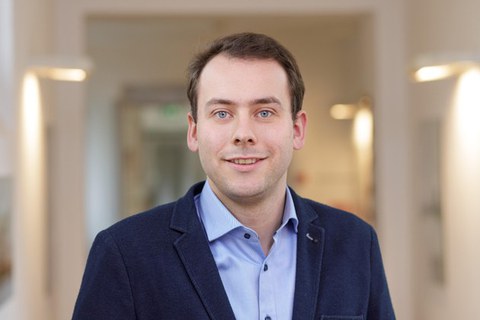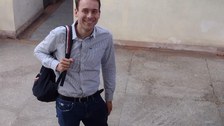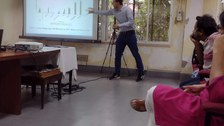Research stay in Kolkata, India
Simon Johannes Bolz (Chair of Economics, esp. Economic Policy and Economic Research) completed a research stay at the Indian Council for Social Science Research from mid-September to the end of October 2023. In the following interview he reports about it.
Where, how long and with whom were you during your research stay?
I was at the Indian Council for Social Science Research (ICSSR-ERC) in Kolkata/India from mid-September to the end of October 2023. I was supervised on site by Saibal Kar, Academic Director of the Institute and Reserve Bank of India Chair Professor of Industrial Economics.
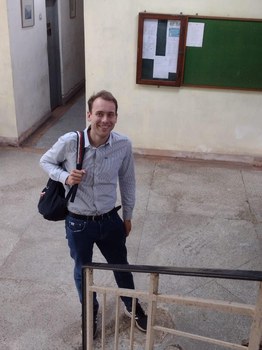
© Simon Johannes Bolz
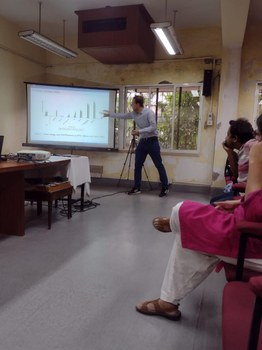
© Simon Johannes Bolz
How did the research stay come about? How much time passed between the initial idea and its implementation? Were there any hurdles in planning your stay?
The research stay was largely initiated by exchanges within our CEPIE research network. During his stay in Dresden in fall 2022, I had the opportunity to talk to Sugata Marjit (CEPIE Guest) about environmental economic research questions in the context of one of his research projects. Sugata also told me about current environmental economics research projects at the Institute in Kolkata. I decided to have a closer exchange with Saibal Kar. Sugata and Saibal then supported me in planning the project, which became more concrete in spring 2023.
It was a great advantage that the German National Academic Foundation was able to provide funding for the research stay as part of my doctoral scholarship at a very early stage. I therefore did not need any funding from TU Dresden. The Institute also supported me in finding suitable accommodation in advance.
The only real organizational "hurdle" was applying for the Indian research visa. The process turned out to be more complicated than initially expected. Fortunately, I started the application process with enough time to spare.
What can you tell us about your stay in Kolkata? What goals and activities did you pursue?
The focus of my work at the Institute was on extracting and processing an Indian company data set together with Saibal Kar. This work forms the basis of a joint research project to investigate the environmental impact of (primary product) trade at company level. I benefited from the fact that an empirical basics course for doctoral candidates was offered at the beginning of my stay at the Institute, which helped me to refresh my methodological knowledge.
In addition, I gave a guest lecture on "Globalization and Inequality" for Master's students as part of the Reserve Bank of India Endowment's Lecture Series on Open Economy Macroeconomics. I was also able to present an existing research project at the CSSSC Kolkata research colloquium.
What experiences will you take back to Dresden?
First of all, the stay showed me the value of transnational academic cooperation. For us doctoral candidates in particular, it is a special benefit that we can exchange ideas with outstanding international academics as part of the CEPIE network. I was very impressed by the enthusiasm and drive of the young researchers when I attended the courses and exchanged ideas with doctoral candidates. At the same time, I realized that the funding and equipment available in Germany cannot be taken for granted. We should take the interest of many students in India in academic career opportunities in Germany as an opportunity to make our courses (especially the Master's courses) even more attractive to an international audience.

